Graham Reid | | 5 min read
Bob Dylan: Ballad For a Friend
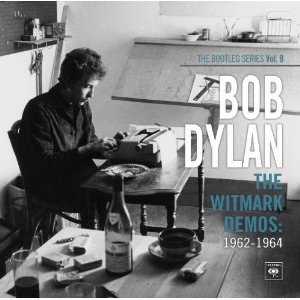
There's a case the most important
person in Bob Dylan's early career wasn't his inspiration Woody
Guthrie (the folk singer he traveled to New York to meet and whose
style he adopted), nor Suze Rotolo (his girlfriend who appeared on
the cover of The Freewheelin' Bob Dylan in '63 ) or even Joan
Baez (his muse, lover and champion).
The key figure – until they bitterly
parted company in 1970 – was his manager Albert Grossman, whom
Dylan would sue in 81 for unpaid royalties.
They were an odd couple: Dylan the
wary, wafer-thin, emotionally cool folk-singer; Grossman a bear of a
man twice is age, and a ruthless hustler who moved “with deadly
purpose like a barracuda circling a shoal of fish,” according to
Michael Gray's Bob Dylan Encyclopedia.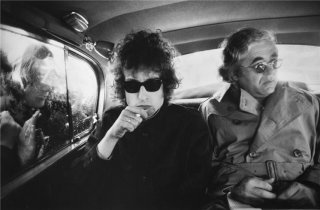
In Scorsese's Dylan bio-film No
Direction Home Dylan says, “you could smell him coming”.
But without Grossman's business sense,
bullying demeanor and manipulative street smarts – he managed
Peter, Paul and Mary, John Lee Hooker and Phil Ochs, and co-founded
the Newport Folk Festival – Dylan might never have emerged as he
did.
“Whatever was wrong with Albert,”
said folkie Dave Von Ronk later, “he believed in Bob, he really
did. He stuck with Bobby. His first album didn't sell and the second
didn't sell very much either, [but] Albert was convinced Bobby would
fly and he never let up.”
It was Grossman – getting 20 percent
of Dylan's earnings and 25 percent from recordings – who did a
private deal in 62 with the publishing company M. Witmark and Sons.
They allowed Grossman to draw from a whopping US$100,000 fund to
bring them talent. Grossman apparently flicked Dylan – then signed
to Duchess publishing owned by Leeds Music – a paltry US$1000 to
get out of previous contract and come to Witmark, “essentially for
nothing” Howard Sounes notes in Down the Highway; The Life of
Bob Dylan.
It was win-win for Grossman (who
immediately had Peter, Paul and Mary cover Blowin' in the Wind
so coined it in from them too). But Dylan won too: he got to record
songs for Witmark (owned by Warners in fact) which would be
short-term money earners when covered – and were working drawings
for the Freewheelin', Times They Are A-Changin' and Another
Side albums released in the following year.
A couple of months ago there was the
reissue of a rare Dylan recording from early 62, Folksinger's
Choice, taken from a radio interview in which he played 11 songs,
among them his own Death of Emmett Till alongside Woody
Guthrie tunes and some blues.
He was in fine and firm voice, was
witty, and typically cagey about his background.
It is an excellent disc, and one which
on previous release disappeared as fast as it came. Bob has good
lawyers and a very protective estate.
But now comes The Witmark Demos – 47
acoustic songs including some from Duchess, only five previously
released – which are officially sanctioned as volume nine in the on-going Dylan Bootleg
Series and capture the growth of Dylan from a wannabe-Woody
(Talking Bear Mountain Picnic Massacre Blues) to a gifted,
original artist.
It's easy to focus on the social-conscience songs (Blowin' in the Wind, Masters of War, Hard Rain, Time They A Changin' on piano, Ballad of Hollis Brown etc) but here too are moving love ballads (Girl From the North Country, a more raw Tomorrow is a Long Time and Don't Think Twice written after Rotolo left for Italy, I'll Keep It With Mine).
There's also the cynical Long Ago,
Far Away, proto-rock blues (Baby Let Me Follow You Down), the
singular Mr Tambourine Man, the
simple eloquence of loss on Ballad for a Friend (his first fully formed masterwork, from '62?), and
the almost rockabilly-folk of Baby I'm in the Mood For You.
Despite the narrow musical range –
one man and a guitar mostly, coughs included – the emotional
breadth and stylistic diversity here (folk, blues, shaggy-dog stories, politics and the personal) is impressive.
For all his faults, Albert Grossman (who died in 86) knew that of all those he was circling, Bob Dylan was the rarity.
Here's the early, one-take evidence.
 At JB Hi-Fi for a limited time they are offering The Witmark Demos double-disc collection with an extra disc, Bob Dylan live at Brandeis University 1963, a rare recording otherwise unavailable outside of the remastered albums in the box set The Original Mono Recordings (see below).
At JB Hi-Fi for a limited time they are offering The Witmark Demos double-disc collection with an extra disc, Bob Dylan live at Brandeis University 1963, a rare recording otherwise unavailable outside of the remastered albums in the box set The Original Mono Recordings (see below).
Click here to buy direct from JB.
MORE ESSENTIAL YOUNG BOB DYLAN
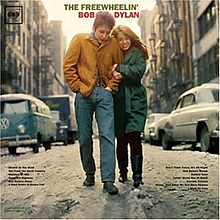 The Freewheelin' Bob Dylan (1963):
While the Beatles only wanted to hold your hand, the 22-year old
Dylan was writing Masters of War, Oxford Town and the ominous
Hard Rain's Gonna Fall as well as Blowin' in the Wind, I
Shall Be Free and Girl from the North Country. Politics
and the personal. And that's Suze on the cover.
The Freewheelin' Bob Dylan (1963):
While the Beatles only wanted to hold your hand, the 22-year old
Dylan was writing Masters of War, Oxford Town and the ominous
Hard Rain's Gonna Fall as well as Blowin' in the Wind, I
Shall Be Free and Girl from the North Country. Politics
and the personal. And that's Suze on the cover.
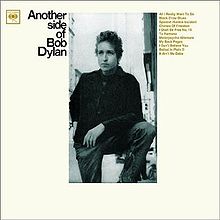
Another Side of Baby Dylan (1964):
For the Beatles it was A Hard Day's Night, and Bob – with
The Times They are A Changin' album behind him – now probed
Motorpsycho Nitemare, pure pop on All I Really Want to Do,
the memorable It Ain't Me Babe and My Back Pages,
Chimes of Freedom . . . Less political, more poetry and
pop-rock.
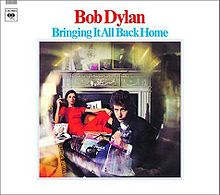 Bring It All Back Home (1965): It
opens with the classic Subterranean Homesick Blues, closes
with It's All Over Now Baby Blue, and along the way are She
Belong To Me, Maggie's Farm, the gentle Love Minus Zero,
Mr Tambourine Man and the poetic outpouring of Gates of
Eden.
Bring It All Back Home (1965): It
opens with the classic Subterranean Homesick Blues, closes
with It's All Over Now Baby Blue, and along the way are She
Belong To Me, Maggie's Farm, the gentle Love Minus Zero,
Mr Tambourine Man and the poetic outpouring of Gates of
Eden.
Times had changed, one side was recorded with an electric band and his conversion to rock was imminent. And that's Mrs Grossman lounging on the cover.
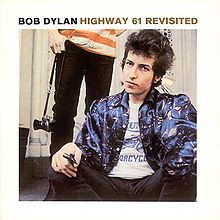 Highway 61 Revisited (1965):
From the classic Like a Rolling Stone through Tombstone
Blues, Ballad of a Thin Man, the title track and the sole
acoustic song Desolation Row, Dylan was now a plugged in,
amphetamine-fueled rock'n'roll poet . . .
Highway 61 Revisited (1965):
From the classic Like a Rolling Stone through Tombstone
Blues, Ballad of a Thin Man, the title track and the sole
acoustic song Desolation Row, Dylan was now a plugged in,
amphetamine-fueled rock'n'roll poet . . .
And he'd changed the face of popular music.
AND
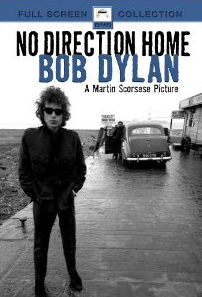 No Direction Home (DVD, 2005):
This insightful bio-film by Martin Scorsese – a whopping 210
minutes over two discs, with special features – traces Dylan's
journey from childhood to that career-changing motorcycle accident in
66 . Definitive and essential.
No Direction Home (DVD, 2005):
This insightful bio-film by Martin Scorsese – a whopping 210
minutes over two discs, with special features – traces Dylan's
journey from childhood to that career-changing motorcycle accident in
66 . Definitive and essential.
. . . So is that enough of the young and influential Dylan for you?
No?
Then his first eight albums (up to and including John Wesley Harding in '67) have been remastered and appear in glorious mono (CD or LP, with deluxe booklet) as the box set The Original Mono Recordings, delivering “one channel of powerful sound”.

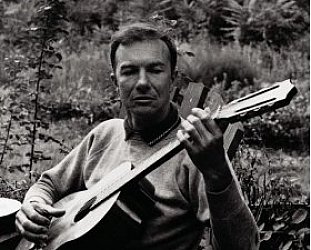
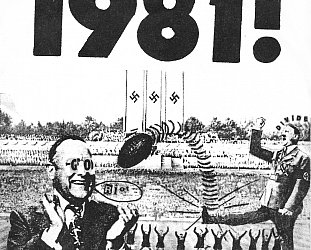
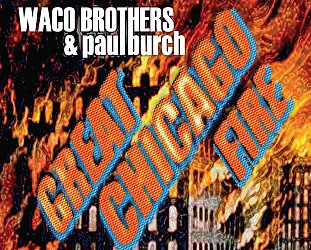


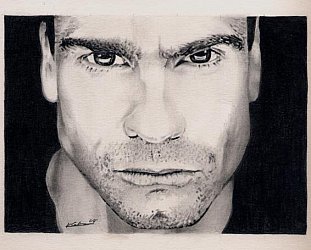
post a comment